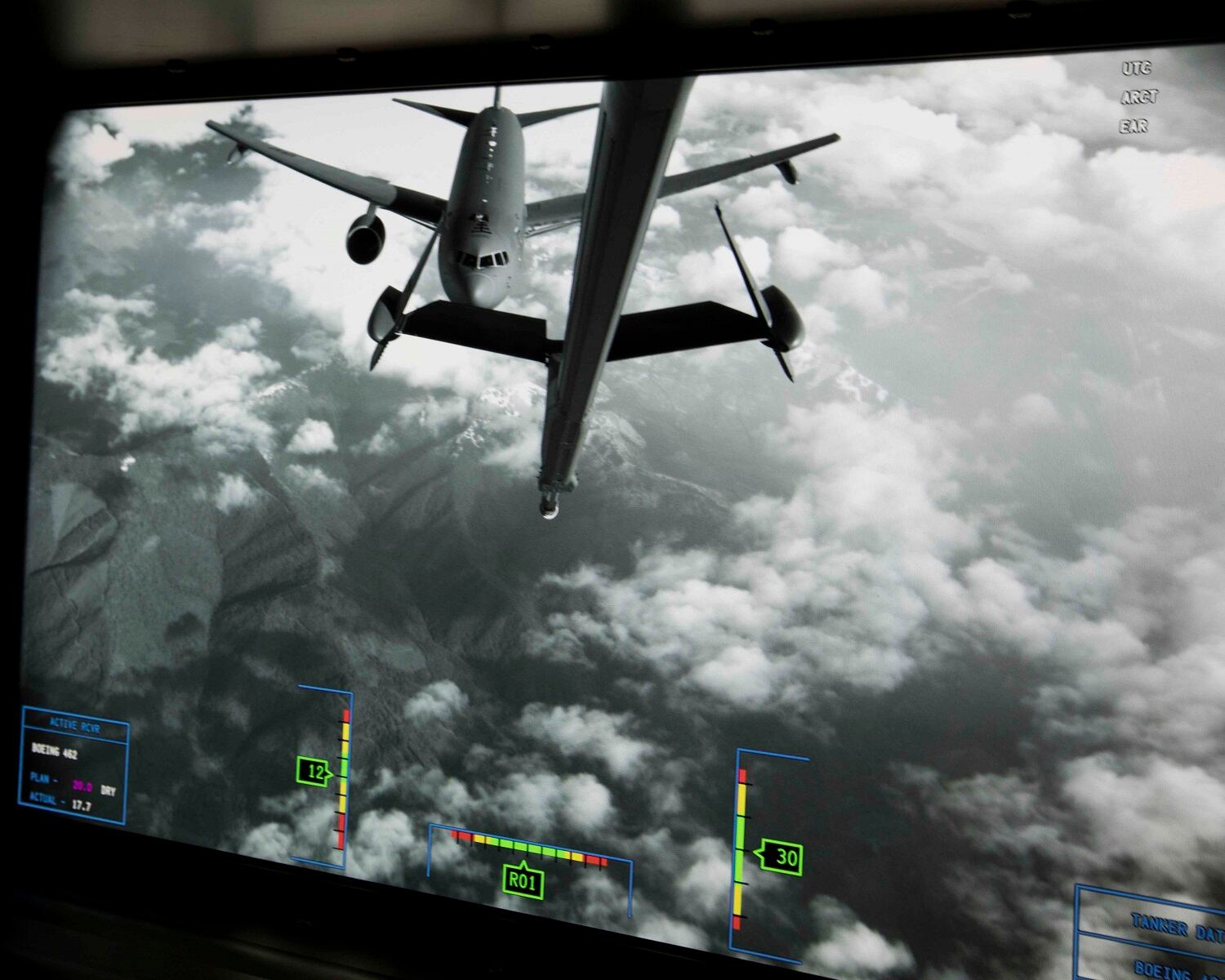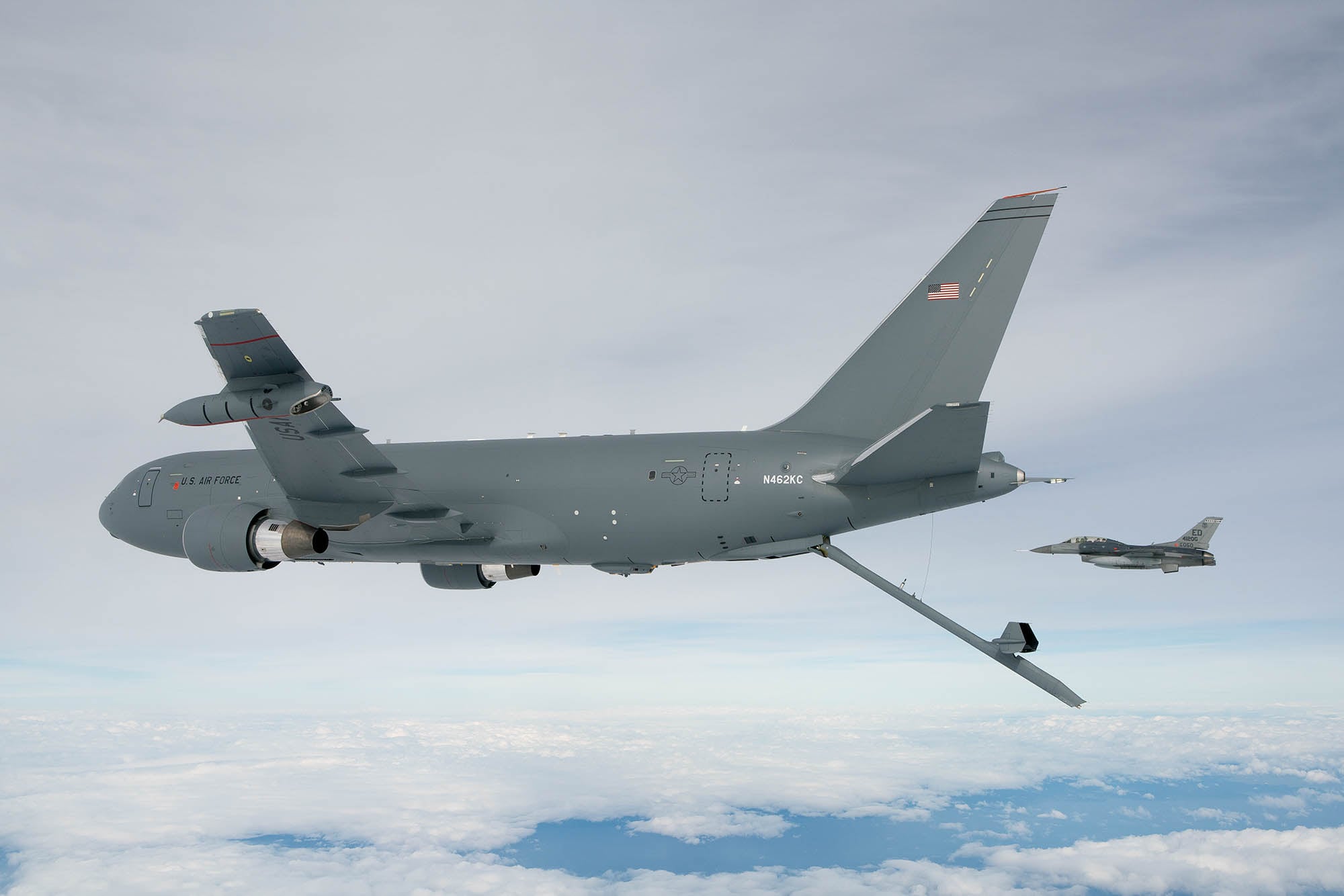SIMI VALLEY, Calif. — Boeing will miss its self-imposed goal to deliver the first KC-46 tanker to the Air Force by the end of the year, the head of the company’s defense business told Defense News in an exclusive interview.
“We’re not going to be delivering a tanker this year,” Leanne Caret, president and CEO of Boeing Defense and Security, said Saturday on the sidelines of the Reagan National Defense Forum.
“This has been a focus of mine since I’ve taken over this role. The team has been persistent, they have a lot of grit, they’re continuing to drive it,” she said. “We are extremely close, we will be delivering those in 2018 and there is no doubt in my mind that this is a great franchise for the Boeing Company and we are delivering an incredible capability to the United States Air Force and to the world.”
Click here for more from Reagan National Defense Forum!
Boeing is contractually required to deliver 18 certified KC-46s and nine refueling pods by October 2018 or face additional penalties, but is not bound by the terms of its fixed-price contract with the Air Force to hand over the first aircraft by a certain date.
As such, the company will not be subject to a fee — a minor point of consolation for Boeing, which has already had to pay $2.9 billion pretax , or about $1.9 billion after tax, because of the numerous cost overruns and delays associated with the program.
RELATED

Boeing has already missed its original deadline in August 2017 to deliver the first 18 KC-46s, and first delivery has also slipped a couple times since then.
Lt. Gen. Arnold Bunch, the Air Force’s uniformed head of acquisition, said the service has been made aware that Boeing will not be able to deliver the first tanker until 2018.
“We’ve said all along that we thought it would be later than what they have been predicted, but the point on it is that Boeing is still very committed to the program,” he added. “They are a great partner, they are definitely committed and are throwing resources at the program to get it to go forward, and we’re doing everything we can to provide the resources to make them successful at getting it done as quickly as they can.”
Bunch said the Air Force had expected to accept the first KC-46 in March, but now “we think it may be a little later than that,” he said.
The Air Force plans to purchase 179 KC-46s during its program of record, and Boeing is hoping to rake in international sales once the program moves out of the test phase.
While Boeing still has a considerable amount of testing required before it can deliver a certified KC-46, the company is also facing challenges in resolving several category-one deficiencies that cropped up this year.
The Air Force has resolved one issue, which occurred when the flow of fuel suddenly stops, causing the KC-46 boom to push forward into the receptacle of the receiving aircraft.
“We’ve worked through the engineering and we’ve done the systems engineering analysis and that one is solved,” Bunch said.
RELATED

Another problem — which involved ensuring that the high-frequency radio remains off during refueling, even during a systems failure — is slated to be resolved “reasonably quickly” after further testing, he said.
However, the Air Force has still not been able to identify the root cause of why the boom seems to be scraping the receiving aircraft during a refueling, and more testing needs to be done to determine whether the problem is occurring more with the KC-46 than with legacy tankers.
“We’re trying to observe and collect data,” Bunch said. “All of that engineering analysis and those data collections from flight, and all of that, is still something the team is working on.”
Valerie Insinna is Defense News' air warfare reporter. She previously worked the Navy/congressional beats for Defense Daily, which followed almost three years as a staff writer for National Defense Magazine. Prior to that, she worked as an editorial assistant for the Tokyo Shimbun’s Washington bureau.
Aaron Mehta was deputy editor and senior Pentagon correspondent for Defense News, covering policy, strategy and acquisition at the highest levels of the Defense Department and its international partners.






